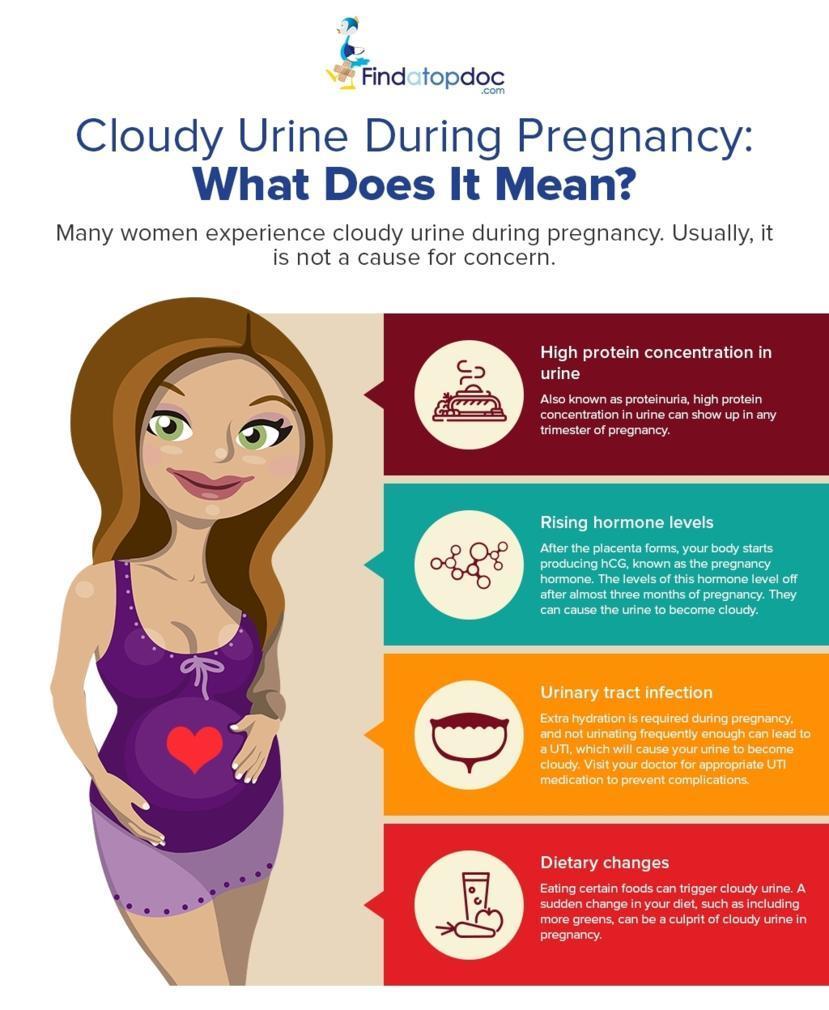
Cloudy Urine During Pregnancy: A Comprehensive Guide
During pregnancy, a woman’s body undergoes a multitude of physiological changes to accommodate the developing fetus. One of the common observations during this period is the presence of cloudy urine. While it can be a cause for concern, it is essential to understand the underlying causes and determine whether it warrants medical attention.
Causes of Cloudy Urine During Pregnancy
The primary cause of cloudy urine during pregnancy is the presence of bacteria in the urinary tract. This condition, known as bacteriuria, is often asymptomatic, meaning that it does not present any noticeable symptoms. However, if left untreated, it can lead to more severe urinary tract infections (UTIs).
Other factors that can contribute to cloudy urine during pregnancy include:
- Increased protein levels: As the pregnancy progresses, the body produces more protein, which can spill into the urine and make it appear cloudy.
- Hormonal changes: Pregnancy hormones can alter the composition of urine, making it more alkaline and conducive to bacterial growth.
- Dehydration: Insufficient fluid intake can lead to concentrated urine, which can appear cloudy.
- Certain foods: Consuming certain foods, such as asparagus or beets, can temporarily discolor urine and make it appear cloudy.
Symptoms of Urinary Tract Infections
While cloudy urine alone is not a definitive sign of a UTI, it can be accompanied by other symptoms that may indicate an infection:
- Frequent urination
- Burning or pain during urination
- Pelvic pain or pressure
- Fever
- Chills
- Nausea or vomiting
Risks of Untreated UTIs During Pregnancy
Untreated UTIs during pregnancy can pose significant risks to both the mother and the fetus. These risks include:
- Preterm labor: UTIs can trigger uterine contractions and lead to premature birth.
- Low birth weight: Infections can affect fetal growth and development, resulting in low birth weight.
- Kidney infections: Severe UTIs can spread to the kidneys, causing a potentially life-threatening condition known as pyelonephritis.
- Sepsis: In rare cases, untreated UTIs can lead to sepsis, a systemic infection that can be fatal.
Diagnosis and Treatment
If you experience cloudy urine during pregnancy, it is crucial to consult your healthcare provider for evaluation. They will perform a urine analysis to determine the presence of bacteria or other abnormalities.
Treatment for UTIs during pregnancy typically involves antibiotics that are safe for both the mother and the fetus. The duration of treatment will vary depending on the severity of the infection.
Prevention of UTIs During Pregnancy
To reduce the risk of developing UTIs during pregnancy, consider the following preventive measures:
- Stay hydrated: Drink plenty of fluids, especially water, to dilute your urine and flush out bacteria.
- Urinate frequently: Do not hold your urine for extended periods. Empty your bladder every 2-3 hours.
- Practice good hygiene: Wipe from front to back after using the toilet to prevent bacteria from entering the urethra.
- Avoid douching: Douching can disrupt the natural balance of bacteria in the vagina and increase the risk of infection.
- Get regular prenatal care: Regular checkups with your healthcare provider allow for early detection and treatment of any urinary tract issues.
When to Seek Medical Attention
If you experience any of the following symptoms along with cloudy urine during pregnancy, seek medical attention promptly:
- Fever
- Chills
- Pelvic pain or pressure
- Burning or pain during urination
- Frequent urination
- Nausea or vomiting
These symptoms may indicate a more severe UTI that requires immediate medical intervention.
Conclusion
Cloudy urine during pregnancy can be a common occurrence, but it is important to be aware of the potential causes and risks associated with it. By understanding the underlying factors, taking preventive measures, and seeking medical attention when necessary, you can help ensure a healthy pregnancy for both yourself and your baby. Remember, early detection and treatment of UTIs is crucial to minimize any potential complications.